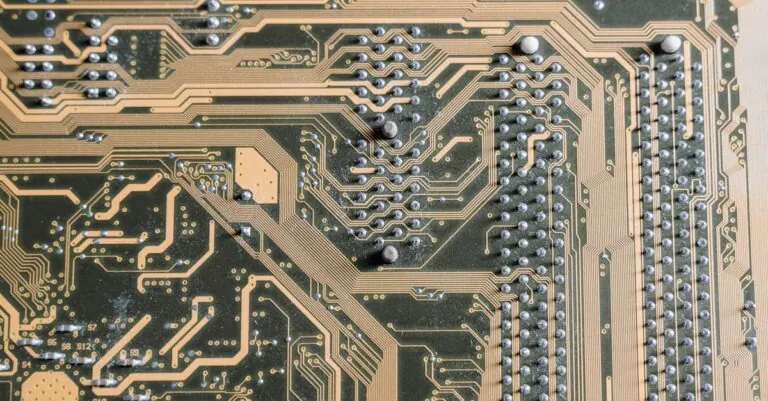A well-maintained kitchen is the heart of every home, but let’s face it—keeping it in tip-top shape can feel like a never-ending chore. Between spills, splatters, and the occasional rogue onion rolling under the fridge, it’s easy to let things slide. Yet, neglecting kitchen maintenance can turn your culinary haven into a chaotic mess faster than you can say “burnt toast.”
Table of Contents
ToggleImportance of Kitchen Maintenance
Maintaining a kitchen involves regular cleaning and organization. A clean kitchen promotes healthier cooking, as it minimizes contamination risks. Regular upkeep helps avoid accumulated grime and clutter, which can lead to bacteria growth. An orderly environment enhances cooking efficiency, allowing for smooth meal preparation.
Proper ventilation plays a crucial role in kitchen maintenance by reducing humidity and odors. Addressing appliances promptly prevents costly repairs and replacements. Ignoring maintenance tasks may result in more significant issues down the line, such as plumbing problems or appliance malfunctions. Investing time in dishwashing, wiping surfaces, and cleaning floors daily creates a welcoming space.
Regular inspections identify potential hazards in the kitchen. Checking for leaks, loose wires, or damaged components ensures safety. Maintaining a well-organized pantry facilitates meal planning, making it easier to find ingredients. Additionally, proper food storage reduces waste and keeps the kitchen inviting.
Keeping surfaces clutter-free not only boosts aesthetics but also promotes safety. Trips or spills can lead to accidents, making organization paramount. A well-maintained kitchen reflects personal pride and enables creativity in cooking. Consistent maintenance transforms this space into a functional and pleasant area, encouraging everyone to gather and share meals.
Regular Cleaning Routines

Regular cleaning routines ensure kitchen hygiene and organization. Establishing consistent practices simplifies overall maintenance and helps prevent chaos.
Daily Cleaning Practices
Daily cleaning tasks include simple yet effective actions. Wipe down countertops after meal prep to eliminate food residues. Load the dishwasher consistently to avoid dirty dish buildup. Empty the trash daily to prevent unpleasant odors and pests. Sweep the floor to manage crumbs and spills, fostering a cleaner environment. These small efforts combine to support a tidy kitchen atmosphere.
Weekly and Monthly Tasks
Weekly and monthly tasks maintain deeper cleanliness. Organize pantry items weekly, checking for expired products. Clean kitchen appliances, like the microwave and oven, to avoid grease buildup. Monthly, inspect surfaces for scratches or damage, ensuring they remain functional and safe. Descale the coffee maker and clean the refrigerator to improve appliance longevity. These scheduled tasks enhance overall kitchen maintenance and efficiency.
Preventive Maintenance Tips
Regular preventive maintenance ensures a functional and efficient kitchen space. Following specific guidelines can help keep appliances and plumbing in optimal condition.
Appliance Care
Inspecting appliances should happen consistently. Check the refrigerator seals for damages, as gaps can lead to energy loss. Additionally, cleaning the dishwasher filter ensures optimum performance and efficiency. Addressing buildup in appliances can prevent breakage, so clean range hoods and stovetops regularly. Scheduling professional servicing for ovens, microwaves, and other appliances every year enhances lifespan and function. Replace worn-out parts promptly to avoid further complications.
Plumbing Checks
Observing plumbing systems requires vigilance. Periodically check for leaks under sinks and around pipes, as early detection prevents larger issues. Inspect faucet aerators and showerheads for mineral buildup; cleaning these can enhance water flow. Drain cleaning contributes to better hygiene and avoids clogs, so consider using a natural solution monthly. Also, look for signs of corrosion on pipes, addressing problems swiftly ensures kitchen functionality. Regularly maintain garbage disposals by running ice cubes through them to remove debris.
Organization and Decluttering
An organized kitchen enhances functionality and promotes a stress-free cooking experience. Decluttering encourages efficiency, making daily tasks more manageable.
Storage Solutions
Maximize vertical space with shelves or cabinets that utilize height. Clear containers provide visibility and accessibility for pantry items. Drawer dividers keep utensils sorted and easy to find. Lazy Susans offer a clever way to store spices, ensuring they remain reachable. Consider under-sink storage for cleaning supplies to keep them out of sight yet accessible. These solutions streamline organization and reduce clutter for a more inviting kitchen.
Efficient Layouts
An efficient kitchen layout improves workflow and safety. The triangular work zone, connecting the sink, stove, and refrigerator, minimizes unnecessary steps during cooking. Place frequently used items within easy reach, such as pots and pans near the stove. Separate prep areas from cooking zones to enhance multitasking capabilities. Softer light under cabinets can create a more appealing workspace, allowing for better visibility. A well-planned layout contributes to a pleasing and functional kitchen space.
Kitchen Maintenance Tools and Products
Selecting the right tools and products simplifies kitchen maintenance. Keeping essential supplies handy promotes a clean and functional space.
Must-Have Cleaning Supplies
Effective cleaning starts with high-quality supplies. Multi-surface cleaners tackle grime on various surfaces, ensuring the kitchen remains hygienic. Microfiber cloths provide an efficient way to wipe down counters, reducing the spread of bacteria. Dish soap is crucial for washing dishes and utensils to maintain cleanliness. Sponges and scrub brushes assist in cleaning pots and pans, preventing buildup. Oven cleaners specifically handle tough grease and burnt food. Finally, disposable wipes offer convenience for quick cleanups, making it easy to address spills immediately while cooking.
Recommended Maintenance Tools
Investing in the right maintenance tools enhances longevity. A vacuum sealer preserves food freshness and minimizes waste. Food thermometers ensure proper cooking temperatures, promoting food safety. Appliance brushes clean refrigerator coils, enhancing efficiency and reducing energy costs. A squeegee simplifies cleaning glass surfaces, such as oven doors and windows. Plumber’s tape aids in preventing leaks, contributing to overall plumbing health. Regular use of these tools keeps the kitchen in excellent condition, ensuring a safe space for food preparation.
Maintaining a kitchen is vital for creating a safe and inviting space for cooking and gathering. Regular cleaning and organization not only enhance functionality but also promote a healthier environment. By incorporating daily and weekly maintenance tasks homeowners can prevent larger issues and ensure their kitchen remains a welcoming hub of activity.
Investing in the right tools and products simplifies upkeep and contributes to the longevity of appliances. Thoughtful organization and layout improve workflow and make cooking a more enjoyable experience. Ultimately a well-maintained kitchen reflects personal pride and fosters creativity in culinary endeavors.



